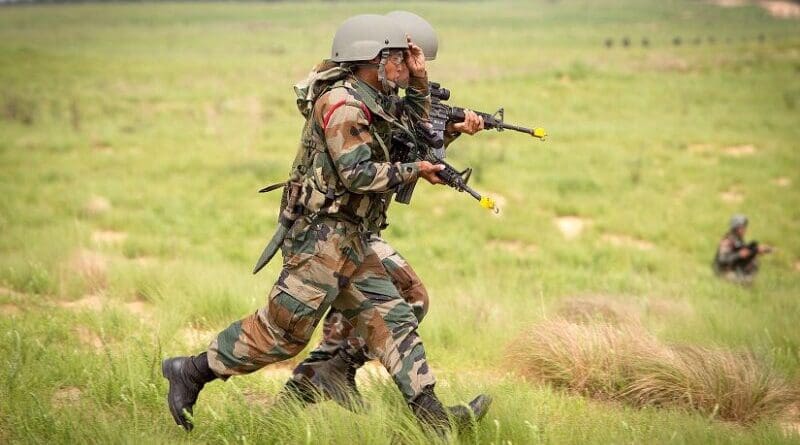Experiential Learning And India After Pulwama – Analysis
By IPCS
By Shubhra Chaturvedi*
The 2016 Uri attack was followed by heated debates on government-military coordination in India, the possibility of integrated responses, better public diplomacy, and improved operational preparedness during crises. Contextualising these discussions in recent India-Pakistan tensions, how do India’s actions following the Pulwama attack explain its experiential learning with respect to Pakistan?
Going Beyond Stock Responses
According to Jack Levy (1994), one of the shortcomings in studying the concept of learning is that normatively desired lessons are acceptable while the others were not. India’s behaviour in the aftermath of the Pulwama attack is consistent with this analysis.
While India’s actions have received varied feedback and the facts around the episode are still fuzzy, it is important to acknowledge that India’s image as a ‘soft’ state has often resulted in its resilience being seen as weakness. The clearest takeaway is that India, after a long history of what some considered ‘too much’ restraint, has demonstrated an interest in experiential learning regarding deterrence stability in South Asia.
How has this experiential learning played out in the current context? After the Indian Air Force (IAF)-claimed strike on Balakot, there was a lack of clarity, as encapsulated in the media, about who would make the first official statement on the issue, and how it would be framed. Later, Indian Foreign Secretary Vijay Gokhale made a carefully constructed statement that referred to the country’s “non-military” “preemptive strike” on a Jaish-e-Mohammed (JeM) camp with the explicit purpose of staving off a future attack on Indian soil by the said group. The foreign secretary also referred to Pakistan’s inability to address cross-border terrorism, and that it was not intended as an attack on the state. This is a clear indication of the Indian learning process after Uri in terms of adopting a much more proactive diplomatic approach. There also appeared to be a greater level of coordination between the Ministry of External Affairs (MEA) and the military, which contributed to the show of anunited front between various arms of government.
India’s options in responding to incidents of cross-border terror have varied from restricting inter-state economic ties, curtailing diplomatic exchanges, and lobbying for Pakistan’s isolation on different international platforms. However, this set of options has not borne results for India in the past. As former India Foreign Secretary Nirupama Rao said, India’s inability or unwillingness to respond firmly has been misunderstood. It was thus perhaps time to think creatively, and learn from recent incidents such as the Uri episode.
Naya Pakistan?
Much like earlier instances, Pakistan responded to the JeM attack in the form of a blanket denial. Pakistani Prime Minister Imran Khan refused to acknowledge the incident’s link with JeM – which claimed responsibility – and suggested that India’s actions were motivated by an attempt to influence the 2019 general election. Khan spoke of new ideals in his ‘Naya Pakistan’ – which according to him do not find any consonance with terrorist activities in the country. He also demanded actionable evidence proving the link with JeM, which was also responsible for the 2001 parliament attack and the 2016 Pathankot airbase attack.
Notably, Imran Khan has since suggested a dialogue, touching, in the same speech, on the consequences for both countries of “miscalculation” if the situation were to escalate beyond the Pakistani ingress into Indian airspace. Khan also spoke of a Pakistani response “at a time and place of its choosing.” In some contrast to Khan’s more conciliatory approach, Pakistani Major General Asif Gafoor said that it was now India’s turn to be surprised, and that it should now be ready. These could either be seen as a gap between the points of view of the Pakistani civilian and military leaderships, or as an instance of a “good cop-bad cop” strategy. Regardless, it merits a discussion on the civil-military relationship in the country under the Khan administration, and whether there has been any change from the past.
Ultimately, however, the Pakistani position on terror remains consistent in terms of distancing itself from the groups that operate from within its territory. Undeterred by the momentum of the conversation around Maulana Masood Azhar, the JeM head, Pakistan continues to protect him, or, at the very least, not taking any strong measures to curb his activities. In this light, India appears to now prefer thinking out of the box – and this has played out in recent events.
Conclusion
By acting, in its view, as a custodian of an international norm – combatting terrorism – India shows early signs of having changed its playbook with regard to Pakistan. Without weighing in on the results, which seem to still be fuzzy on facts on the ground, the indicators of this experiential learning are evident of at least a change in approach. These include a refusal to accept the ‘Naya Pakistan’ rhetoric, and attempting a closely coordinated political, diplomatic, military and economic response to an incident of cross-border terror. The second-order effect of such an approach signals a stronger India that is able to balance its commitments as a responsible state upholding international norms while also responding firmly to cross-border terrorism. This is the clearest sign yet of India’s experiential learning at play with regard to Pakistan.
*Shubhra Chaturvedi is a PhD Candidate at CIPOD, JNU, New Delhi


And the third-order effect of such an approach signals a tarnished India that uses flirting with nuclear war to win elections and unable to balance its commitments as a responsible state upholding international norms (including eschewing jingoism) and appears ornery to calls from all to accept a mediated resolution of her dispute of Kashmir – the real reason behind all this idiocy.